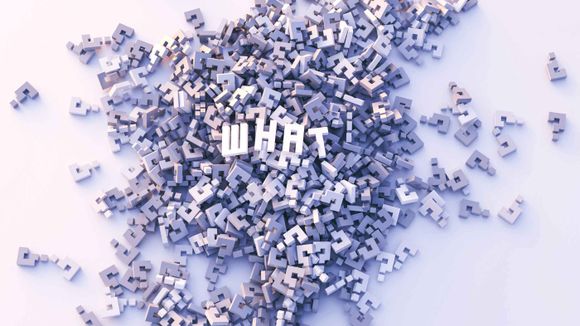Symptoms of hyponatremia
Hyponatremia, or low sodium levels in the blood, can present with a variety of symptoms, some of which may be difficult to identify. These include:
- Headache
- Fatigue
- Nausea
- Vomiting
- Muscle cramps
- Confusion
- Seizures
- Coma
Causes of hyponatremia and related diseases
There are several underlying diseases and conditions that can lead to hyponatremia. It is important to consult a medical professional, such as an endocrinologist or nephrologist, for an accurate diagnosis. Some possible causes include:
Addison's disease
An endocrine disorder causing insufficient production of hormones, leading to low blood sodium levels.
Congestive heart failure
A condition where the heart cannot pump blood effectively, resulting in fluid retention and diluted sodium levels.
Chronic kidney disease
Kidney dysfunction can lead to an inability to regulate sodium levels.
Liver cirrhosis
Advanced liver disease causing fluid accumulation and dilution of blood sodium levels.
Syndrome of inappropriate antidiuretic hormone (SIADH) secretion:
A condition causing excessive release of antidiuretic hormone, leading to water retention and low sodium levels.
Medications that can cause hyponatremia
Certain medications can cause hyponatremia as a side effect. Some of these drugs include:
- Diuretics: These medications help remove excess fluid from the body, but can also cause electrolyte imbalances.
- Antidepressants: Some antidepressants, such as selective serotonin reuptake inhibitors (SSRIs), can cause low sodium levels.
- Antiepileptic drugs: Medications used to treat seizures, like carbamazepine, can contribute to hyponatremia.

Photo by Natalia Luchanko on Unsplash
Herbal and natural remedies for hyponatremia
There are several herbs and natural remedies that can help support the body's sodium balance. Some of these include:
- Urtica dioica (Stinging Nettle): Known for its diuretic properties, stinging nettle can help promote healthy sodium levels.
- Solidago virgaurea (Goldenrod): This herb has diuretic and anti-inflammatory properties, making it beneficial for maintaining a healthy sodium balance.
- Taraxacum officinale (Dandelion): Dandelion leaf can act as a natural diuretic, helping to regulate fluid and electrolyte levels.
Lifestyle changes to prevent hyponatremia
To prevent hyponatremia, consider implementing the following lifestyle changes:
- Stay hydrated: Drink an adequate amount of water, but avoid overhydration.
- Monitor your sodium intake: Consume a balanced diet that includes appropriate levels of sodium.
- Exercise regularly: Regular physical activity can help maintain proper fluid and electrolyte balance.

Photo by Vadim Bogulov on Unsplash
Questions and Answers
Below are ten frequently asked questions that are not covered in the article:
Q: What is the normal range for sodium levels in the blood?
A: The normal range for blood sodium levels is typically between 135 and 145 milliequivalents per liter (mEq/L).
Q: How is hyponatremia diagnosed?
A: Hyponatremia is diagnosed through blood tests and a physical examination. Your doctor may also order additional tests to determine the underlying cause of the low sodium levels.
Q: Can I get hyponatremia from drinking too much water?
A: Yes, drinking excessive amounts of water can lead to a condition called water intoxication, which dilutes sodium levels in the blood and can cause hyponatremia.
Q: How long does it take to recover from hyponatremia?
A: The recovery time for hyponatremia varies depending on the severity and underlying cause. In some cases, it can take days or weeks to recover, while in others, it may take longer.
Q: Is hyponatremia a life-threatening condition?
A: In severe cases, hyponatremia can be life-threatening, especially if not treated promptly. Low sodium levels can lead to seizures, coma, and even death.
Q: What should I do if I suspect I have hyponatremia?
A: If you suspect you have hyponatremia, consult a healthcare professional immediately for a proper evaluation and treatment plan.
Q: Can I prevent hyponatremia by increasing my salt intake?
A: While consuming an appropriate amount of salt can help maintain healthy sodium levels, excessive salt intake can lead to other health problems, such as high blood pressure. It is essential to consume a balanced diet and follow your healthcare professional's recommendations.
Q: Are there any long-term complications associated with hyponatremia?
A: If left untreated, chronic hyponatremia can lead to complications such as neurological damage, cognitive impairment, and bone fractures.
Q: Can certain foods help prevent or treat hyponatremia?
A: Consuming a balanced diet with a variety of foods containing sodium, potassium, and other essential electrolytes can help maintain a healthy electrolyte balance and prevent hyponatremia.
Q: Are athletes more prone to developing hyponatremia?
A: Athletes, particularly endurance athletes, may be at a higher risk for developing hyponatremia due to excessive sweating, high fluid intake, and prolonged physical exertion. It is crucial for athletes to monitor their hydration and electrolyte levels during exercise to prevent hyponatremia.









